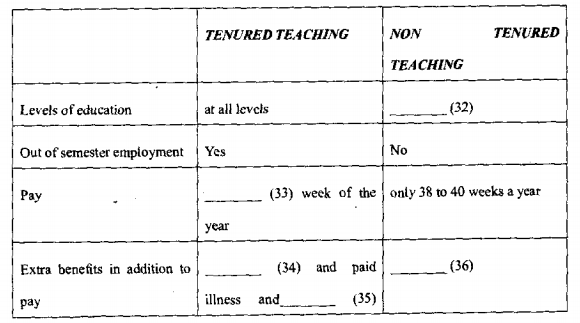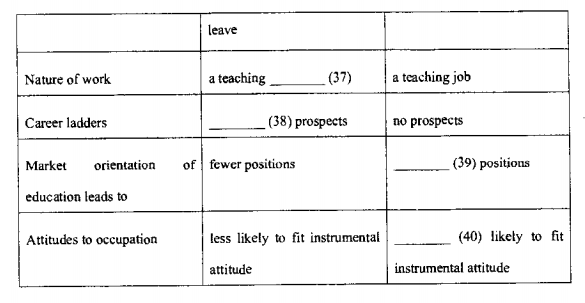 题目内容
(请给出正确答案)
题目内容
(请给出正确答案)
(阅读理解)Having returned from her round trip(往返旅程), the angry woman stood outside
(阅读理解)Having returned from her round trip(往返旅程), the angry woman stood outside the ticket office of the station.“The railway owes me£12,” she said to Harry Jenks, the young man working at the office.“You sold me a ticket for May 22nd, but there was no ship from Jersey that night.So my daughter and I had to stay in a hotel.It cost me £12.”
Harry was worried.He remembered selling the woman a return ticket.“Come into the office, Madam,” he said politely.“I’ll just check the Jersey timetable for May 22nd.”
The woman and her little girl followed him inside.She was quite right, as Harry soon discovered.There was no sailing on May 22nd.How could he have made such a careless mistake? He shouldn’t have sold her a ticket for that day.Wondering what to do, he smiled at the child.“You look sun burnt,” he said to her.“Did you have a nice holiday in Jersey?”
“Yes,” she answered, shyly.“The beach was lovely.And I can swim too!”
“That’s fine,” said Harry.“My little girl can’t swim a bit yet.Of course, she’s only three…”
“I’m four,” the child said proudly.“I’ll be four and a half.” Harry turned to the mother.“I remember your ticket, Madam,” he said.“But you didn’t get one for your daughter, did you?”
“Er, well——” the woman looked at the child.“I mean...she hasn’t started school yet.She’s only four.”
“A four-year-old child must have a ticket, Madam.A child’s return ticket to Jersey costs…let me see…£13.50.So if the railway pays your hotel, you will owe£1.50.The law is the law, but since the fault was mine…”
The woman stood up, took the child’s hand and left the office.
1).The woman was angry because ____.
A.she couldn’t use the ticket for her round trip
B.she had to return home a day earlier than she had planned
C.she spent more money than she had expected
D.Harry had sold her a ticket to Jersey where there was no sailing
2).Harry was worried because ____.
A.the woman was angry with him
B.he had not done his work properly
C.the Jersey timetable was wrong
D.the little girl didn’t have a return ticket
3).Harry started talking to the little girl ____.
A.because he was in difficulty and did not know what to do
B.because he had a little girl about the same age as this girl
C.because he wanted to be friendly to the little girl who looked so nice
D.when he suddenly realized that he could find a way out from the little girl
4).When Harry said, “The law is the law, but since the fault was mine…,"he meant that ___.
A.they must follow it without other choice, even though the fault was his.
B.he had to be strict with the woman because of the law, although he didn’t want to
C.the woman had to pay him£1.50 and the railway would pay for the hotel
D.she should pay£1.50, but as he had made a mistake, she could go without paying
5).The woman left the office without saying anything because ____.
A.she wanted to go home and get money for the child’s ticket
B.she was so angry that she didn’t want to have anything more to do with the young man
C.she was moved by Harry’s kindness
D.she knew she would have to pay the railway if she insisted
 如果结果不匹配,请 联系老师 获取答案
如果结果不匹配,请 联系老师 获取答案


 更多“(阅读理解)Having returned from her…”相关的问题
更多“(阅读理解)Having returned from her…”相关的问题



















